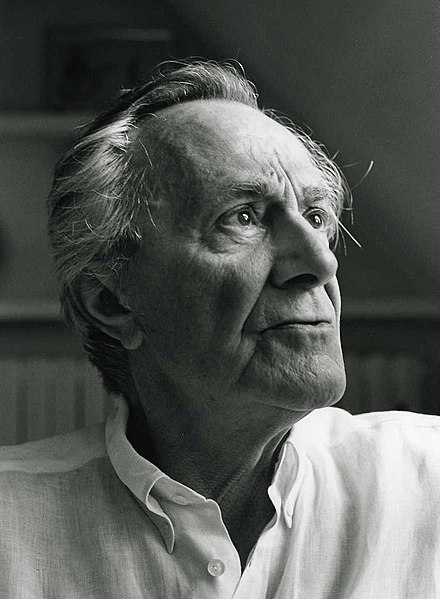Kathy Acker was an American experimental novelist, playwright, essayist, and postmodernist writer, known for her idiosyncratic and transgressive writing that dealt with themes such as childhood trauma, sexuality and rebellion. Her writing incorporates pastiche and the cut-up technique, involving cutting-up and scrambling passages and sentences; she also defined her writing as existing in the post-nouveau roman European tradition. In her texts, she combines biographical elements, power, sex and violence.
Acker in 1996
Postmodernism is an intellectual stance or mode of discourse characterized by skepticism towards scientific rationalism and the concept of objective reality. It questions the "grand narratives" of modernity, rejects the certainty of knowledge and stable meaning, and acknowledges the influence of ideology in maintaining political power. Objective claims are dismissed as naïve realism, emphasizing the conditional nature of knowledge. Postmodernism embraces self-referentiality, epistemological relativism, moral relativism, pluralism, irony, irreverence, and eclecticism. It opposes the "universal validity" of binary oppositions, stable identity, hierarchy, and categorization.
Neue Staatsgalerie (1977–84), Stuttgart, Germany, designed by architects James Stirling and Michael Wilford, showing an eclectic, postmodern mix of classical architecture and colorful ironic detailing.
Ray and Maria Stata Center (2004), designed by the Canadian-American architect Frank Gehry for the Massachusetts Institute of Technology (MIT), Cambridge, Massachusetts.
American singer-songwriter Madonna
Jean-Francois Lyotard, photo by Bracha L. Ettinger, 1995





